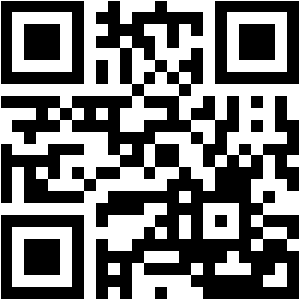| University | New Zealand Tertiary College (NZTC) |
| Subject | Master of Teaching and Learning (ECE) |
Introduction
- The introduction applies to the whole report. Begin by defining language and literacy within an early childhood context, drawing on relevant content/domain knowledge and current professional ltterature. State the age group your learning experiences are suited to and your understanding of curriculum as framed in Te Whāriki (Ministry of Education, 2017) and supporting research.
Language and literacy [Name your specific learning experience here]
Implementation
- Describe how your plan supports the children’s interests, whānau aspirations, and centre priorities for learning.
- Link to relevant goals and learning outcomes from Te Whāriki to clarify your role as kaiako.
- Identify environmental considerations, resources, and teaching strategies and practices appropriate to the age group.
- Consider course concepts such as working theories, learning dispositions and prior knowledge.
Conceptual knowledge, skills and learning
- Identify and discuss the core language and literacy practices relevant to early childhood settings, such as listening, speaking, reading, sign making, viewing, and presenting.
- Continue to integrate course concepts such as working theories, learning dispositions, and prior knowledge
Review
- Based on the learning outcomes, describe what you would evaluate or review from the learning experience
- Suggest possible next steps or areas for further development
Repeat the above structure for your remaining two learning experiences.
Conclusion
- Summarise the key ideas from your learning plan and reflect on any take-away messages for future practice.
Reference List:
- Include references to Te Whāriki, Talking Together Te Kōrerorero, Required Readings, and any other relevant and credible literature throughout the report.
Stuck! Do not Know Assessment Answers?
Hire NZ Native Experts 24/7.
Part Three: Presentation for Teachers’ Meeting and Evaluation
Prepare a presentation script for a teachers’ meeting addressing strategies to support a newly enrolled child from culturally and linguistically diverse backgrounds who is learning English and te reo Māori for the first time. In your presentation, propose and evaluate a variety of practices and strategies that promote the child’s belonging, wellbeing, home language, and their emerging language competencies of English and te reo Māori. Discuss your script with fellow kaiako and evaluate their feedback to refine your proposed strategies and identify future opportunities to enhance the learning environment.
LO1, 2 (1500 words)
Using the situation above, prepare the written transcript that you could share with other kaiako to articulate the research-informed practices and strategies that could be implemented to support this tamaiti who speaks English and te reo Māori as additional languages (EAL) in your early childhood setting. The transcript should have an introduction, headings of the practices and strategies that could be used, and a summarising statement to conclude.
For each practice and/or strategy, ensure you consider how it will:
- Support a sense of belonging and wellbeing for the tamaiti and whānau
- Affirm the home language
- Support English and te reo Māori language learning
This is a hypothetical case (no ethical approval required), and you must not describe a real child from your setting.
Your discussion must draw on:
- Core ECE texts and required readings from the course
- Contemporary research literature relevant to multilingualism and cultural responsiveness
- Centre policies and philosophy (where applicable)
These strategies should reflect principles that affirm and empower children and whānau, particularly those learning additional languages. Be sure to link your ideas to key concepts from the course and use appropriate citations to demonstrate critical engagement with relevant literature.
Buy Custom Assignment & Homework Solutions
Pay to NZ Native Writers | Cheap Cost & Plag Free
Many students at New Zealand Tertiary College find the Master of Teaching and Learning (Early Childhood Education) assignments challenging — especially when applying Te Whāriki principles and developing strategies for multilingual learners. But you don’t have to worry anymore! Our expert writers at NZ Assignment Help provide 100% human-written, plagiarism-free NZ university assignment help, tailored to NZTC academic standards. Get custom help for your Language and Literacy Learning Plan and Teachers’ Meeting Presentation—written by professionals who truly understand New Zealand’s early childhood curriculum.
- MNSC931 Whānau and Community Hauora Initial Assessment 1 Brief 2026 | Wintech
- 115020 Accounting Fundamentals Assessment 2026 | Massey University
- MAMC01805 Applied Human Resource Management Assessment 1, 2026 | Future Skills AIC
- EDU725 Inclusive Early Childhood Education Assessment 2, 2026 | Open Polytechnic
- 110733 Financial Accounting and Reporting Assessment 1, 2026 | Massey University
- CIT504 Introduction to Information Technology Assessment 2, 2026 | YOOBEE
- BSNS5004 Change and Innovation Assessment 3 2026 | Open Polytechnic
- BSNS4601 Introduction to Project Management Assessment 1, 2026 | Open Polytechnic
- 218.763 Advanced Construction Law Assignment 1 2026 | Massey University
- BUSS611 Organisational Decision-Making Skills Assignment 1 2026 | AIS


